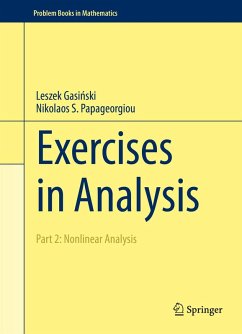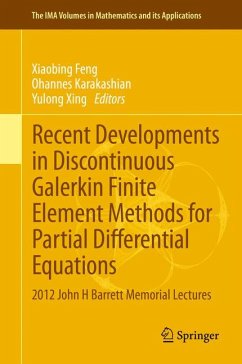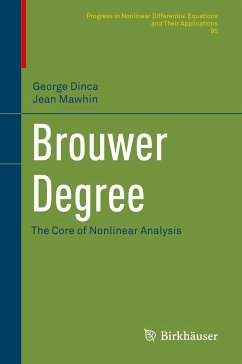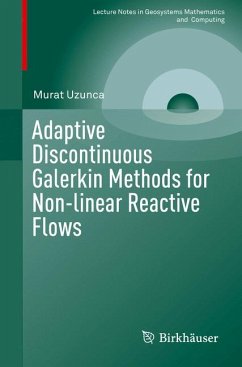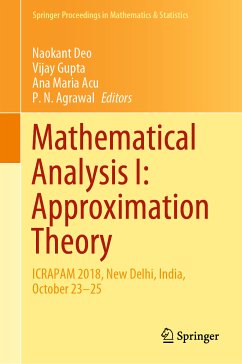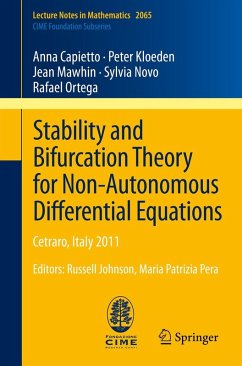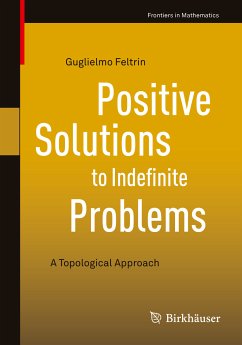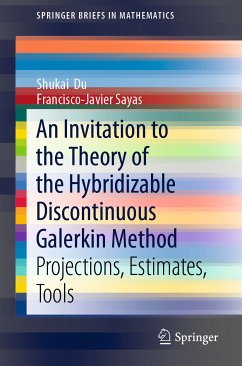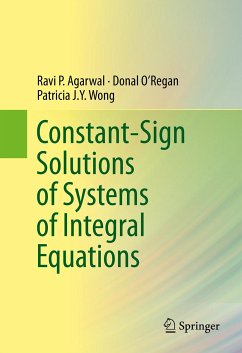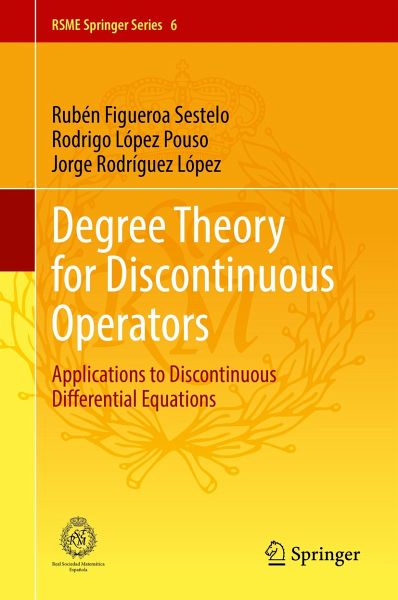
Degree Theory for Discontinuous Operators (eBook, PDF)
Applications to Discontinuous Differential Equations
Versandkostenfrei!
Sofort per Download lieferbar
80,95 €
inkl. MwSt.
Weitere Ausgaben:

PAYBACK Punkte
40 °P sammeln!
This unique book contains a generalization of the Leray-Schauder degree theory which applies for wide and meaningful types of discontinuous operators. The discontinuous degree theory introduced in the first section is subsequently used to prove new, applicable, discontinuous versions of many classical fixed-point theorems such as Schauder's. Finally, readers will find in this book several applications of those discontinuous fixed-point theorems in the proofs of new existence results for discontinuous differential problems. Written in a clear, expository style, with the inclusion of many exampl...
This unique book contains a generalization of the Leray-Schauder degree theory which applies for wide and meaningful types of discontinuous operators. The discontinuous degree theory introduced in the first section is subsequently used to prove new, applicable, discontinuous versions of many classical fixed-point theorems such as Schauder's. Finally, readers will find in this book several applications of those discontinuous fixed-point theorems in the proofs of new existence results for discontinuous differential problems. Written in a clear, expository style, with the inclusion of many examples in each chapter, this book aims to be useful not only as a self-contained reference for mature researchers in nonlinear analysis but also for graduate students looking for a quick accessible introduction to degree theory techniques for discontinuous differential equations.
Dieser Download kann aus rechtlichen Gründen nur mit Rechnungsadresse in A, B, BG, CY, CZ, D, DK, EW, E, FIN, F, GR, HR, H, IRL, I, LT, L, LR, M, NL, PL, P, R, S, SLO, SK ausgeliefert werden.




